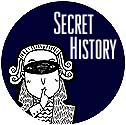
Comment
on this story |
 |

Market Square in December, a century ago
by Jack Neely
"Busiest of All Places / Is Market Square In the Holiday Season" went the headline of a story in the Knoxville Journal, 100 years ago this month, and it was true. Gay Street was always crowded, of course, but at least the crowd occasionally made room for an electric streetcar or a passing carriage. Market Square did not.
"There are other places in the city, but during the holiday season there are none equal to Market Square. The stores on each side are filled with seasonal merchandise, and more than filled with customers, the nearly 60 stalls in the Market House being piled high with seasonal delicacies of nearly every imaginable kind...."
One of the busiest shops was Kern's Bakery, the big fancy building on the southwest corner. Opened here by German immigrant Peter Kern more than 25 years ago, the corner store was a Knoxville institution. The bread baked there was just part of Kern's line, and at Christmastime it wasn't necessarily the main part. He sold the sort of things people associated with the holidays: candy, fruits, ice cream, soft drinks. He used to sell Christmas fireworks before they were outlawed, and sometimes he still did, anyway. Kern's advertised as, simply, "the best place for Christmas. Our friend, Santa Claus, has put his royal signet upon all our goods...."
Kern, his wife, Henrietta, and several of their 11 children lived together in a nice big Victorian house on Walnut, just one block from Kern's. Four of the sons helped Peter run the busy store.
Christmas was a holiday with German origins, and the baker from Heidelberg knew how to do it right. The kids who swarmed his candy store likely believed that the old man with the walrus mustache and the German accent really did know Santa Claus.
"On Saturday night, the market is thronged until after 10," according to the reporter, and it was right about that time, on a typical holiday-season Saturday night just after 10, that Peter Kern got an urgent telephone call from home. His wife, Henrietta, had been with her children in the decorated family sitting room when she felt suddenly "indisposed." Kern sent for a doctor, but by the time he got home Henrietta—who, at 53, had been in apparent good health—was dead, seated in her chair. Doctors said it was heart failure.
For the close-knit German community, it was the season's tragedy. The funeral service was conducted in both German and English; Henrietta Kern had many friends in Knoxville who spoke only one or the other.
It cast a pall over the holiday that year, but Market Square went on. There was always some unusual curiosity on the square, some Yuletide display everybody was talking about. This particular Christmas, it was a big alligator skin, a 14-footer bagged by a former Knoxvillian in Florida.
This unsigned Journal description comes from the week of Henrietta Kern's death, and can't be much improved.
"The country wagons and their proprietors always present something new and attractive to the student of mountain life. Many of these old dilapidated wagons, drawn sometimes by an ill-matched span of mules, sometimes by shaggy mountain ponies, and not infrequently by a yoke of steers, come from 60 to 80 miles away, from the heart of the Great Smokies, with their loads of Christmas cheer, fine close-braided evergreens for Christmas trees, high stacks of dark green holly with thick clusters of brilliant scarlet berries, great bundles of dull-green mistletoe with its waxlike white berries.
"Scores of these wagons, laden with their loads of spicy fragrance, come creaking in over the long [Gay Street] bridge...every morning just as the first faint streaks of dawn begin to appear in the eastern sky, rumble slowly around the first corner into Prince [Market] Street, and then...up to some position in the market."
Once there, these men in ragged clothing "fish out a bundle containing some corn dodgers, cold fried bacon, and perhaps an onion or two, for breakfast. Some of the mountaineers are curiosities in themselves." The law required them to board their animals in local stables, and they did; the law didn't require the same of humans. "They never think of paying for a night's lodging for themselves, but will curl up somewhere in or under their wagons on the square, wrapped in an old quilt or blanket, where they appear to spend the night very comfortably, and certainly cheaply.
"With the coming of the holidays, these peculiar types increase on the market, for the men who bring the holly and mistletoe are by no means the same men who make a business of coming into the city three or four times...a week to peddle some of their surplus farm produce. These mountaineers seldom visit the city except at holiday season."
Besides Yuletide decorations, the mountaineers also sold apples, pork ribs, squirrels, quail, and posssum; a whole possum could go for 15 to 30 cents. By one estimate, there were 1,500 turkeys for sale on Market Square, including one 36-pounder that people came just to look at.
"Market Square is the most democratic place on earth," the anonymous reporter continued. "There the rich and the poor, the white and the black, jostle each other in perfect equality."
Today, though the city still pipes in Christmas music even on bleak Saturdays, Market Square is no longer the Busiest of All Places. But on a cold morning this week, one hardy survivor was still selling Christmas greenery on Market Square, wreaths and garlands of boxwood, holly, cedar, fir, and pine. She has been there every December for years and years.

December 7, 2000 * Vol. 10, No. 49
© 2000 Metro Pulse
|





